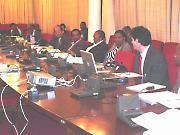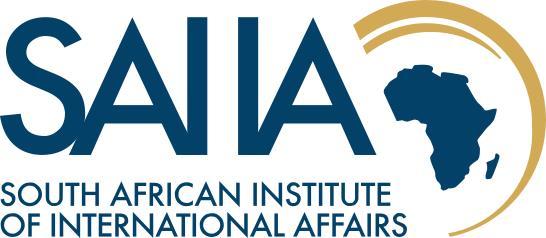KAS Briefing:"Actors and Processes in SA Foreign Policy" - Foundation Office South Africa
Forum
Details
KAS-Briefing for Members of the Portfolio Committee on Foreign Affairs about Actors and Processes in South African Foreign Policy
The process of foreign policy making in South Africa during its decade of democracy has been subject to a complex interplay of competing forces. Policy shifts of the post-apartheid period not only necessitated new visions for the future but also new structures. The creation of a value-based new identity in foreign policy needed to be accompanied by a transformation of institutions relevant for the decision-making process in foreign policy.
However, looking at the foreign policy in the era of President Mbeki it becomes obvious that Max Weber’s observation that “in a modern state the actual ruler is necessarily and unavoidingly the bureaucracy, since power is exercised neither through parliamentary speeches nor monarchical enumerations but through the routines of administration” no longer holds in the South African context.
Neither does the Department of Foreign Affairs nor the Portfolio Committee on Foreign Affairs set the agenda or dominates the discussion. It is mainly the Presidency that is driving the discourse.
Besides, the conflict that one encounters between the executive and legislative branches in the realm of foreign policy in consolidated democracies seems to be absent on the South African scene. So far, Parliament and South African political parties remained substantially calm in the discussion of foreign policy. With the exemption of the stance on the regime of Robert Mugabe, neither has Parliament become polarised nor have the political parties faced deep divisions over other substantial issues of foreign policy.
For Konrad-Adenauer-Stiftung the afore mentioned situation has raised the question about who controls, influences and balances government and more specifically the Presidency in its foreign policy decision making process. Who formulates the national interest that transfers into foreign policy, and who holds the relevant institutions accountable in the implementation phase are pertinent questions?
In general, the most appropriate instrument would be parliament that however needs to be capacitated and informed to perform in its role in the country’s decision making process.
Striving for an answer Konrad-Adenauer-Stiftung, South Africa initiated a study in cooperation with the South African Institute of International Affairs. The research results will be presented to the Parliamentary Portfolio Committee on Foreign Affairs on October 15th.
Andrea E. Ostheimer
Acting Resident Representative
Konrad-Adenauer-Stiftung
Johannesburg, South Africa





